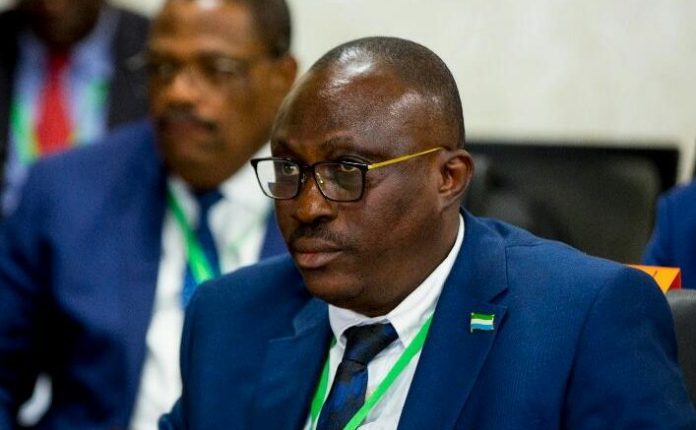By Amin Kef Sesay
The civil service is the backbone of the State and can either support or undermine a country’s entire system of governance. Donors recognize this important fact and have since the end of the civil war in 2002 spent tens of millions of dollars helping the Government to reform and strengthen the civil and public services.
The unfulfilled expectations and gaps of the New Direction Government from 2018 to date and two years into elections which clearly points towards a weak civil and public service delivery capacity means critical and strategic thinking, planning, organizing and coordination for extending more opportunities are required.
Civil servants, who mostly work in MDAs, are central to effective governance in developing countries. They deliver essential services to citizens, commission large-scale infrastructure, regulate economic activities and engage in diplomacy with foreign countries – to name just few roles.
As such, the newly appointed Chief Minister, Jacob Jusu Saffa, needs the full cooperation of all Heads of MDAs, SOEs and Ambassadors to enable the Government deliver effectively and sustainably on the country’s Medium Term National Development Plan (MTNDP).
With the amount of funds stolen, wasted and misappropriated by MDAs reported annually by the Auditor General’s office shows that still, political will to change things is the greatest single challenge to an effective civil service reform.
It is generally known that what greatly hinder civil service productive, efficiency and effectiveness in service delivery are:
Negative or poor attitude to work, Bureaucracy, Political affiliation, Political interference, Duplication of offices and positions, Shortage of qualified personnel, Ineffective organization and Lack of initiative
Given this reality, if political leadership, including Parliament and the Executive do not invest in reform, then donors are unlikely to make any major headway.
Political will is so important to civil service reform because the civil service is fundamental to the political system to the extent that change cannot take place without the agreement of the most powerful players. They are essential both in terms of ensuring reforms continue over the long term and as a source of accountability.
Political patronage in this country has resulted in political appointees that see the civil service as a source of personal gain through pay, promotions and employment status.
Such interests see any reform to the civil service as a threat to these benefits. Similarly; many within the civil service benefit from being able to dole out public money, jobs, and other contracts and are unlikely to willingly give up such powers.
Civil service reform projects faced with strong patronage systems work best when they focus on specific areas. Focusing on, for example, merit-based recruitment can both improve civil service reform while at the same time chip away at the power of vested interests.
What the Audit annually implies is that systems with weak institutions lack the drive necessary to push reforms.
Furthermore; because the rule of law is weak in the country as a whole, it is weak also within the public service. This means that policies are not properly elaborated and that employees are not aware of their rights and responsibilities.




